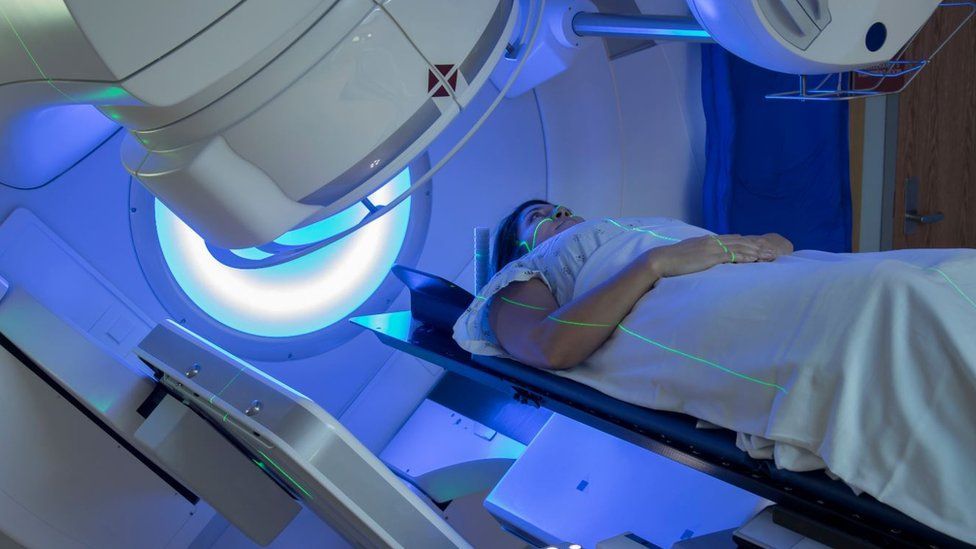In an effort to significantly reduce the number of people receiving a later-stage diagnosis, the Scottish government has released a new cancer strategy.
The 10-year plan also aims to lessen the disease-related health disparities.
Presently, 42% of cancer cases are discovered in advanced stages.
However, the government hopes to cut the percentage of those with stages three and four diagnoses to 24 percent by 2033.
In ten years, there would be about 5,000 fewer cases of disease in a more advanced stage.
The strategy includes a 136-action three-year cancer action plan.
With a particular emphasis on the cancers that are currently less treatable, both plans aim to improve all aspects of cancer services, from prevention and diagnosis to treatment and post-treatment care.
The Detect Cancer Earlier (DCE) Program, which has received ongoing funding from the Scottish government, is part of the government's effort to lower the number of people with advanced cancer.
It also hopes to tackle inequalities associated with cancer:.
- Currently, the most deprived areas have a 20 percent lower cancer screening uptake than the least deprived areas.
- Lung cancer is three times more likely to occur in people who live in the most impoverished areas.
- The percentage of cancer-related deaths is 74% higher in the most deprivation than in the least deprivation.
The Scottish government is also working to make services more easily accessible in rural and island communities.
Publishing a strategy gives you the opportunity to outline your idea for how to enhance cancer care, but carrying out these objectives is a very different situation.
Over the past ten years, an 11 percent increase in cancer diagnoses has occurred, largely as a result of an aging population. In order to treat patients, more oncologists will be needed, as well as more people to perform and analyze diagnostic tests.
Additionally, it is now more likely to survive cancer. Thanks to new medications and technology, there are many different treatment options available, but they are expensive.
Therefore, there are two major obstacles that the health secretary will have to overcome in order to accomplish the goals outlined here: how to find more specialized personnel in a market where there are shortages, and how to find more money when budgets are extremely tight.
Michael Matheson, the health secretary, introduced the strategy while visiting the cancer center at Western General Hospital in Edinburgh. There, he spoke with staff members providing the Single Point of Contact service, which helps guarantee that patients have devoted support throughout their treatment.
"Improving cancer survival and ensuring that everyone receives excellent and easily accessible care is our sole focus," he declared. Cancer services were not exempt from the pandemic's profound effects on other facets of health and social care.
This cancer strategy will guarantee that we are properly providing these essential services and clearly directing future investments. ".

According to him, those who required diagnosis and treatment would quickly have access to high-quality services.
More people can be cured, but Mr. Matheson added, "We also recognize the importance of treatment to extend good quality life and the provision of excellent palliative care.".
The Scottish Cancer Network, he continued, would serve as the cornerstone of the Scottish government's strategic goals by "outlining accepted best clinical practice and ensuring people with cancer of common standards of care, regardless of where they live.".
As the public affairs manager for Cancer Research UK in Scotland and the chair of the Scottish Cancer Coalition, Dr. Sorcha Hume, said: "Our NHS is under more pressure than ever, and it is our sincere hope that this strategy is the first step toward better cancer services for the people of Scotland.
"However, it is crucial that the strategy receive sufficient funding and swift implementation. ".
The strategy, according to Lorraine Dallas, director at the Roy Castle Lung Cancer Foundation and chair of the Less Survivable Cancers Taskforce Scotland, is a significant step in the right direction.
She said: "We're heartened to see a strong commitment to acting against those cancer types with the lowest survival rates. For the purpose of enhancing cancer diagnostic and treatment services, we currently need to make sizable investments in research and action. ".
In order to survive cancer, she continued, an early diagnosis is essential. We are aware that less treatable cancers are much more likely to be found in the later stages of the disease, which has a significant impact on the available treatments.
. "







